Throughout the Ayodhya ceremony, TV channels were replete with commentaries about Modi’s fasting ritual of sleeping on the floor and staple diet of coconut water, rituals meant to cleanse the body before consecrating an idol of Hindu god Ram.
Ram, the hero of an ancient epic, is believed to be an incarnation of Vishnu, one of the principal deities of Hinduism.
“Modi’s objective was clearly to present himself as a 21st century Ram, who will create a Ramrajya; he will be both god and prime minister. He doesn’t simply want to be respected; he wants to be worshipped,” Gupta said.
Gandhi’s temple entry incident, however, was possibly connected to denying him national spotlight.
“The only reason I could think of is that someone in the establishment wanted to avoid the possibility of some enterprising TV staffer presenting Modi and Gandhi simultaneously on a split screen, both at temples,” she said.
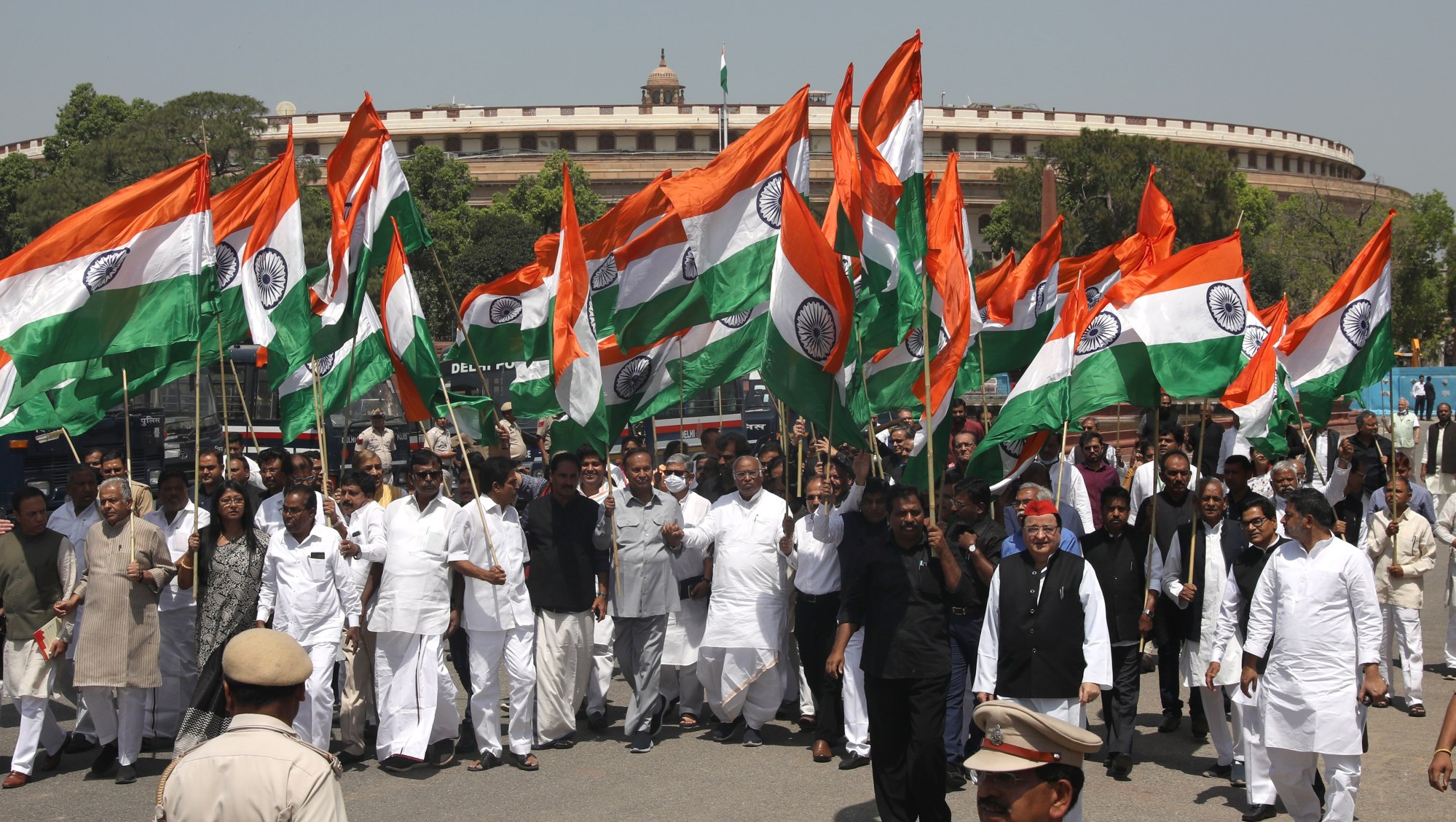
Once hailed as India’s grand old party, Congress had won an outright majority in seven national elections out of 17 since India became independent in 1947, and thrice led a ruling coalition government.
But it has struggled to command voters’ attention over the last decade since Modi propelled the BJP to two successive wins, and is in pole position to secure a third term.
Wins in three heartland states late last year have further bolstered the BJP, while the opposition has struggled to stitch together a meaningful partnership under an Indian National Developmental Inclusive Alliance (INDIA) since last year.
With elections tentatively scheduled from April, the nascent alliance has hastened to appoint Congress party president Mallikarjun Kharge as chairman and Bihar chief minister Nitish Kumar was offered the position of convenor. But local media reports suggest that Kumar has rejected the position and may cross over to the BJP.
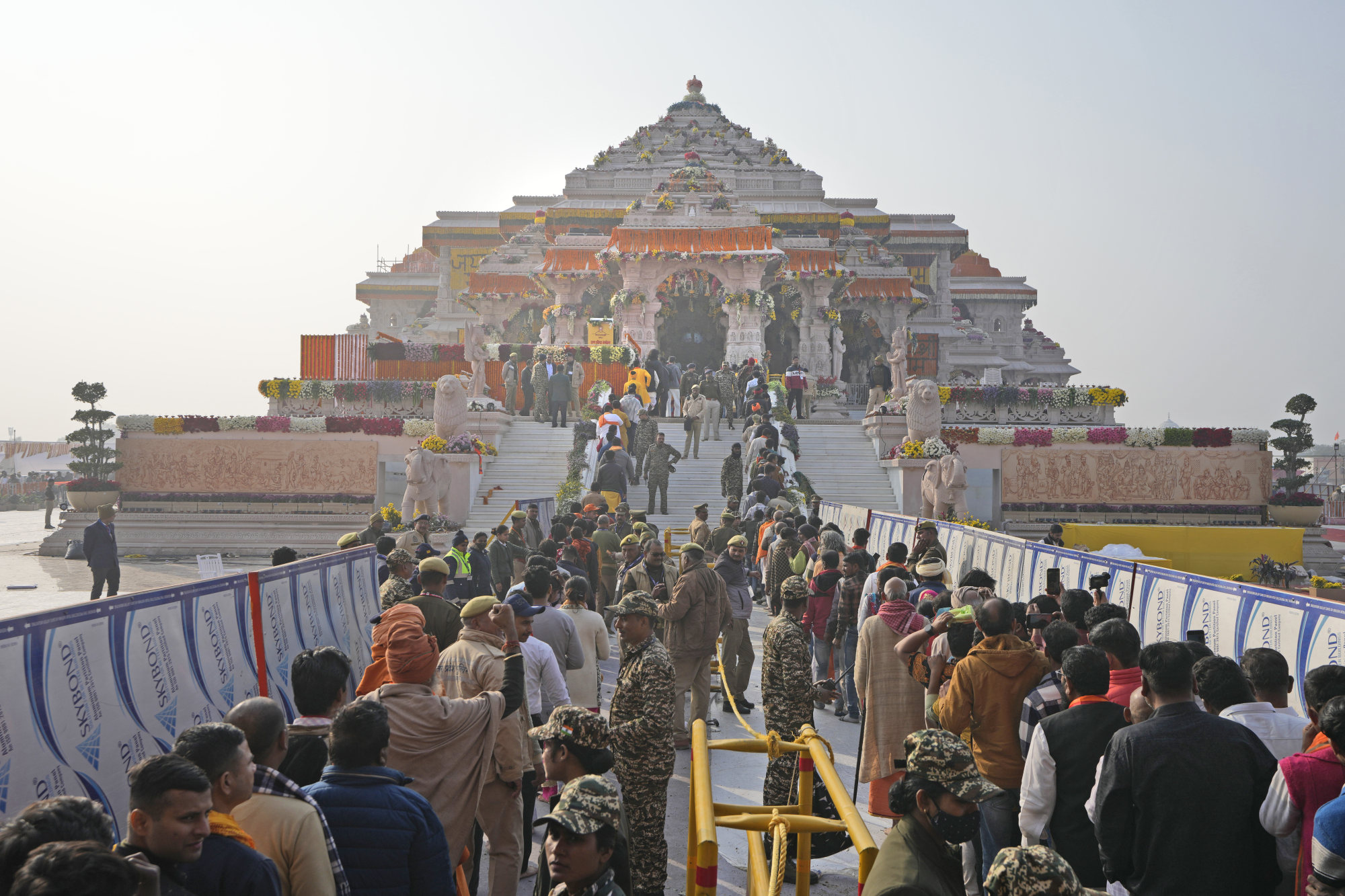
Voter disconnect
Analysts doubt whether these efforts alone would be enough to impress voters because the opposition is yet to outline a powerful message to counter the BJP’s narrative of Hinduism and the promise of speedy development.
“If a march is timed just before elections, then the goodwill it generates can be translated into votes. Instead of a god in the sky, people do appreciate a politician who comes to their doorstep, whose hand they can shake,” Gupta said.
“[But] it will depend on how much energy he [Gandhi] puts in and on the state of the INDIA alliance, which is currently not in very good shape.”
Gandhi’s first march from south to north last year likely played a role in Congress’ surprise victory in the southern state of Karnataka in May, but analysts say the party could struggle to convince voters in the BJP’s strongholds in central, northern and western parts without a message that resonates with voters.
On Thursday, the BJP unveiled its election campaign slogan, Sapne Nahi Haqeeqat Bunte Hai, Tabhi Toh Sab Modi Ko Chunte Hai (“Dreams become reality, with people voting for Modi”), declaring that the party’s strategy will be to shine the spotlight on the prime minister’s leadership.
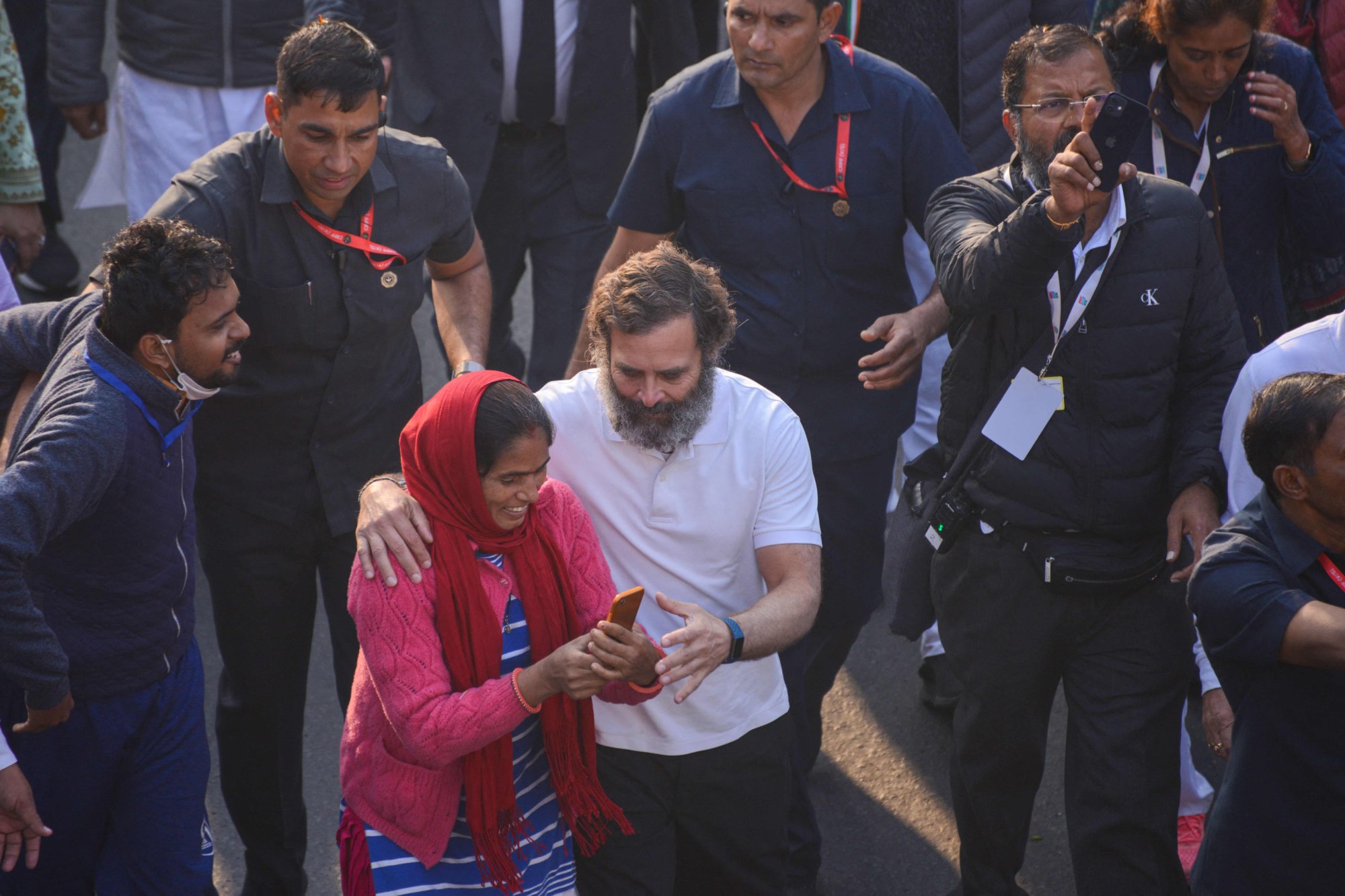
Gandhi’s latest march has bolstered his popularity rating to 18-19 per cent with Indian voters, but he is trailing far behind Modi, who has consistently polled above 50 per cent in the last five years, according to Yashwant Deshmukh, founder of research firm C-Voter.
“It shows that you are unable to capture the imagination of the masses,” he said.
Yet, Congress remains the most powerful opposition party and its decades of leadership with the Gandhi family – which has produced three Indian prime ministers – at the helm is unlikely to be broken.
That has hampered the party’s chances of revival under a new generation of leaders, with many having left Congress after being denied key roles which have gone to favoured stalwarts.
Earlier this month, up-and-coming leader Milind Deora ended his family’s 55-year association with Congress to join a faction of the regional Shiv Sena party. The episode was almost a repeat of Jyotiraditya Scindia, another promising leader, who walked over to the BJP in 2020, analysts say.
In the run-up to Congress’ loss to BJP in Rajasthan’s state elections last year, the party was riven by a feud over the chief minister position, which went to veteran Ashok Gehlot instead of Sachin Pilot, a second-generation Congress leader who had helped propel the party to victory in Rajasthan in 2018.
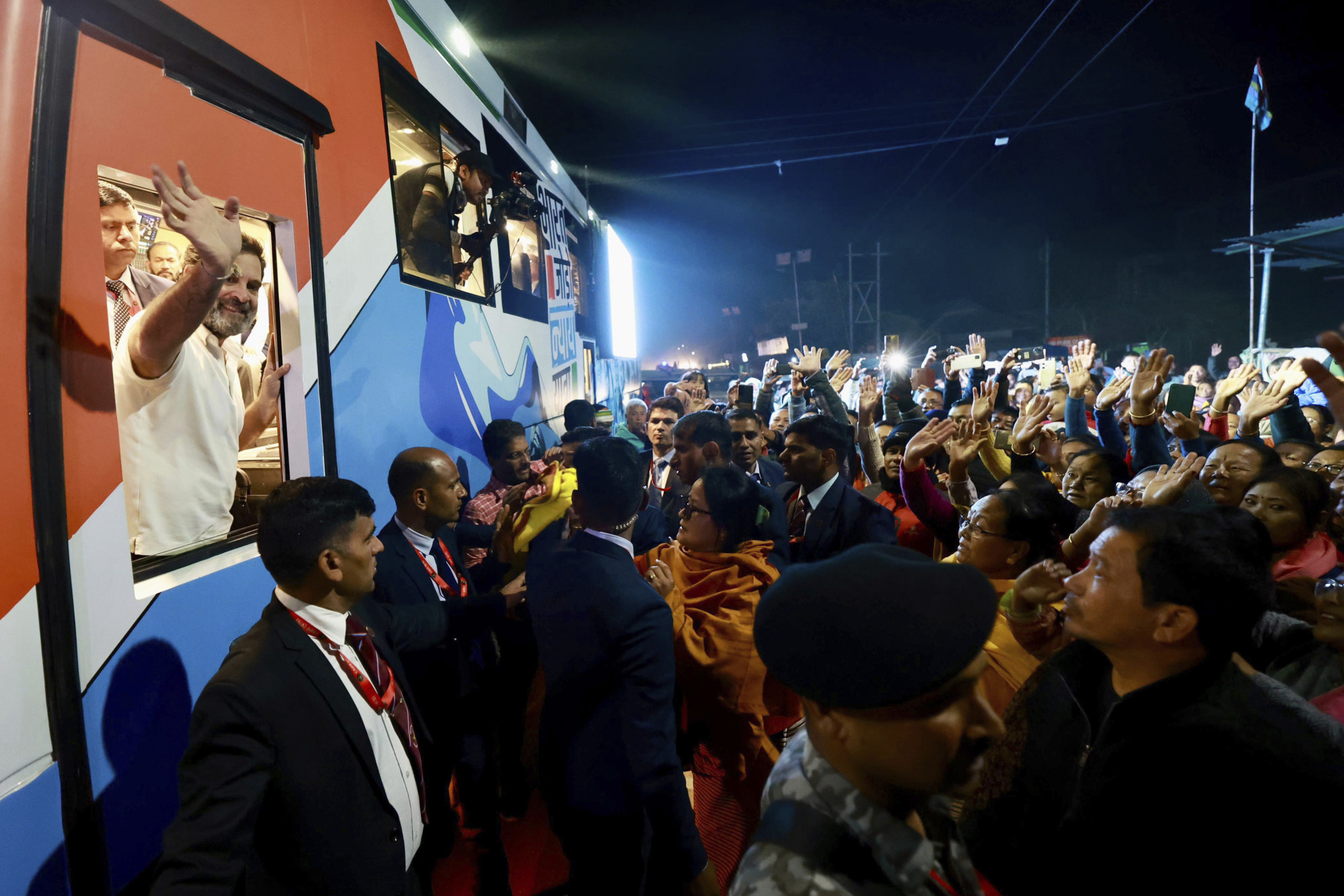
Avoiding a trap
Analysts say such actions have played right into the hands of the BJP because large sections of the population are disenchanted with the Gandhi family, who they see as elitists. That has been fanned further by a relentless social media campaign by the ruling party.
“The visceral hatred of the Gandhis is something the BJP has managed to create and nurture by presenting [Jawaharlal] Nehru and his descendants as essentially English-speaking persons, posh, who are socially at ease whether in a village in India or in Paris or Cambridge,” Gupta said.
“The generational shift has not yet taken place in Congress. There is a sense that the older leaders don’t want to take a back seat. There is also a circle of people who have figured out that they will keep their jobs as long as Rahul Gandhi protects them,” she added.
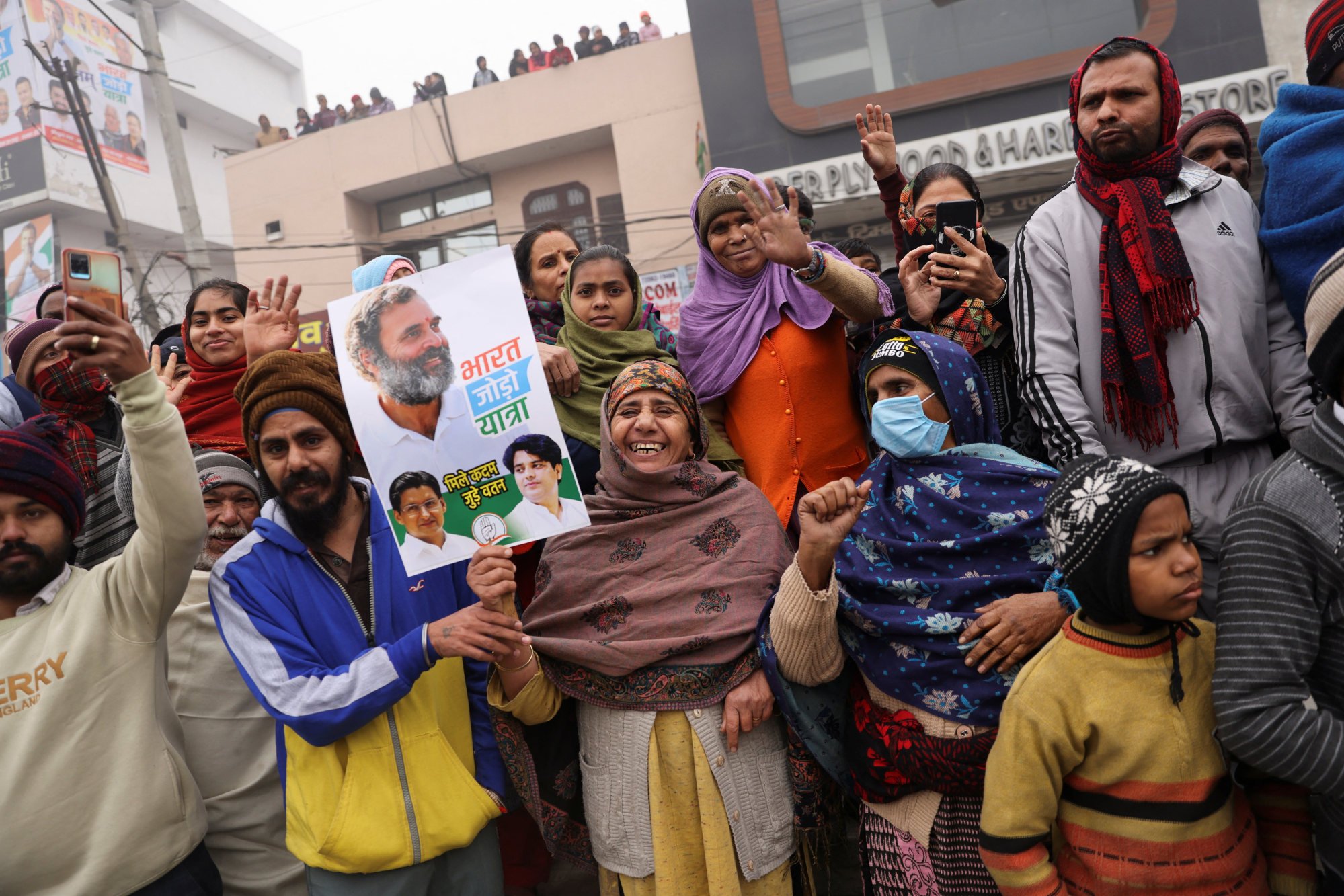
While some Indians still back Congress for its secular ideology, staunch BJP supporters who are largely from the country’s majority Hindu population view the Gandhis as indulging in dynastic rule, while previous Congress governments were embroiled in scams.
“Congress only indulges in corruption. They do little work for Hindus,” said Kamlesh Sharma, an Indian small trader.
In 2019’s parliamentary elections, the BJP won 303 of 545 seats in the lower house – a clear majority – after securing 37 per cent of the vote with the help of its staunch Hindu support.
Analysts say the opposition parties stand a better chance of delivering a blow to the BJP if they can quickly arrive at a seat-sharing arrangement to field common candidates. The ruling party enjoyed only a slim margin in several seats in the 2019 polls.

